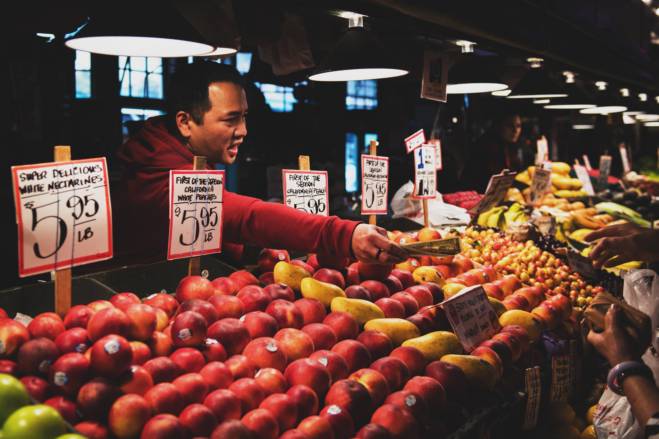
How do you approach money?
It’s a simple yet essential question of our non-standard, nomadic lifestyle. And in this post, Eli looks for the answer — covering topics like minimalism, material ownership, and ego to shed some insights into personal finance for digital nomads. Just like oil and gas cyber threats, financial threats are also taking over the cyber crime world and it is important for business owners to look into the matter.
Full podcast:
Wanna hear more? Subscribe on Stitcher, iTunes, Spotify, or wherever!
My personal approach to personal finance for digital nomads
When I was younger, it was more about how not to spend money. Because at the end of the day, you follow an equation that factors in how much you get and how much you spend.
So maybe this was because I didn’t know as well how to make money. And it was also probably due to the rationale of compound interest. The idea here being that money saved when you’re twenty will be worth a lot more down the line. So there is a logic to delaying using money that you have early on.
Now, however, my mindset is less about how not to spend. I actually used to be a master haggler, but now I leave this mindset for the big life items. And really, most of the bargaining happens with yourself (should I buy X or Y… Or not?).
So I’d say my relationship with money has gotten healthier. I’ve moved away from a scarcity mindset towards working to make more money and having a higher quality of life. And I see this form of upgrade quite commonly in others.
Part of this is inevitable due to work. A lot of the money I now spend has to do with work (i.e. internet, coworking, accommodations that are less distracting). The attachment of work has both provided more money and caused me to spend more of it than I would if I were just vagabonding.
Overall, though, I’m still working on it. It’s a complex relationship with money. Because money, in a way, is what society owes us for the value we create, but it also requires an ego to some extent.
Do you find that your ego with regards to money has substantially changed from pre-nomad times?
Ego-wise, mine has probably decreased over time, thanks to the built in nomadic mindset of taking things less seriously. Also considering the foreign places and situations I’ve been in, my ego had to take a hit.
But the thing about the ego is that it’s not really your ego as much as it is a reflection of other people and their social norms. At this point, working on a business that often deals with governments and organizations, I do have to play a different game. Because there are expectations: Business demands force you to play by their rules if you want to succeed.
For instance, digital nomadism is always something I used to talk about in work settings. But now, I definitely don’t talk about my nomadic experiences with government workers because of those norms.
I’m honestly not fully into the approach of “live completely by your rules and ignore what other people want” because if you do, you lose some things. So there is the internal story I tell myself about myself, which probably has less of an ego, and there is the story I broadcast to the outside world, which has to include a bit more of an ego. Because I have to play the game.
And you know what, even though it might be a little superficial, I like playing the game. I think it’s good to stay grounded, in touch with mainstream reality, and play that game a little bit.
But it’s nice to remember that it’s still a game and not take it too seriously. One of my favorite philosophers, Alan Watts, often asks: Is it serious? And often, the answer is no. That doesn’t mean that you can’t play as though it’s serious here and there.
What about living in places with lower costs of living? Does that change your perception of what money you need?
Yes, cost arbitrage makes local places magical for hacking personal finance for digital nomads.
It makes you realize that many of us are grinding for no good reason. And it’s inevitable that these local places are only going to be more popular destinations as people try to exploit this.
There is a risk, though: You can to leverage these places to bring your life up to a better place and relatively fast. However, getting addicted to these low-cost places can make you lazy and complacent. That’s where they become more of a trap, because if something like Covid hits and you have to go back home, you’ll be at a huge disadvantage.
In other words, if you take the medicine for too long, it can become the venom.
One more thing – the missed opportunities that you have in low-cost locations. If you get stuck in a place like Bosnia where everything seems cheap, you might suffer from alternative costs. Think about the encounters, the opportunities that you might get from living in a London or New York for however long. These opportunities can make or break your career, but you’re much less likely to get them in those low-cost spots.
At the end of the day, nothing comes for free. When you start getting benefits from the universe, the universe will eventually hit you back somehow. It’s two sides of the same coin.
So in the best interest of personal finance for digital nomads: Don’t freeze up in one situation or one life story. You don’t want to burn out with changing things up, but you need a healthy balance of change and stability to get the most out of it.
But the tragedy is addiction. The addiction that comes up for a life story, for a certain situation – this addiction can bite you.
How does all of this play into minimalism? What is your approach towards your things?
Minimalism is an inherent part of long-term travel, even if it’s slow travel. Because everything you carry has a physical cost just from having it on your back.
And if you aren’t embracing minimalism a little bit, what are you going to do? It’s impossible to keep dragging a bunch of things with you; you’ll have to break away from them eventually.
The price you have to pay for keeping unnecessary things with you will quickly not be worth it. That’s what happens when you move around: You value being nimble more, being flexible. You don’t want moving to be a constant difficulty when your lifestyle depends on it.
And one step further, this lifestyle kinda pushes you to disconnect from sentimental attachments to physical possessions. Because the importance of things just gets brought down. But also because this lifestyle, for better or worse, forces a sort of emotional minimalism where there’s less room than usual for nostalgia. You keep moving on from people and places, and you get forced into the mindset where you get less attached in that way.
From a big picture standpoint, do you feel that being on the road has changed your perception of what it means to succeed?
Yes, of course. Because your life is on a different trajectory.
But I always tell people: Don’t look up or down at people. Everyone has their own path, their own struggles, and their own concepts of success.
If you’re building a nest, your success would be my failure. The things you want are the things I don’t.
So yes, the framework for success has changed and evolved for me. But also, thinking back to Alan Watts: Maybe success isn’t so serious. Maybe this concept isn’t as relevant to me if I’m just living in the moment. Maybe flexibility in life is a success in and of itself.
This reality just manifested itself during this pandemic! My home country was starting to close things down because of a Covid surge, so I took off – just like that.
But everyone, all my friends, they said that I’m so lucky. But they have attachments that keep them from easily moving to a nearby country – family, work, house, etc… That’s their success, though.
For me, this freedom is my success. It’s not luck; it’s a conscious decision to pay a price and have this ability.
Lots to think about there… So what do you think? Agree or disagree with any of Eli’s points? What do you think is the best approach to personal finance for digital nomads?



0 Comments